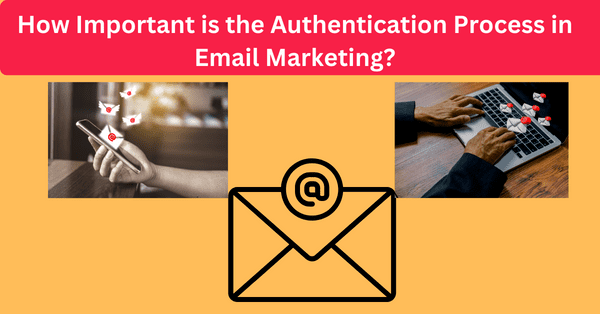In this article, we are going to know about How Important is the Authentication Process in Email Marketing. How Email Marketing Authentication Works. Let’s start .

The Critical Role of Authentication in Email Marketing
1. Protecting Trust and Deliverability
In the fast-moving field of digital marketing, where companies are constantly looking for innovative ways to connect with customers, email marketing remains -Mail a basic strategy.
However, with the variety of tactics used to create engaging content and optimize delivery, one critical aspect is often overlooked: the authentication process. Authentication in email marketing acts as a gatekeeper, protecting both the sender’s reputation and the recipient’s trust.
This article looks at the importance of the authentication process in Email Marketing, its impact on deliverability, and best practices for implementing strong authentication measures.
2. The Foundation of Trust
The heart of successful email marketing is trust. Consumers are inundated with a barrage of emails every day, ranging from promotional offers to newsletters. Amid this avalanche, building credibility is paramount.
Authentication plays a crucial role in verifying the legitimacy of the sender. By authenticating emails, companies build trust among recipients and reduce the risk of falling victim to phishing or spam attacks.
3. Maintaining the sender’s reputation.
Email authentication is critical to shaping sender reputation, a metric closely monitored by Internet Service Providers (ISPs) and email clients. A positive sender reputation increases the likelihood that emails will end up in the target group’s inbox and not in the dreaded spam folder.
Authentication protocols such as SPF (Sender Policy Framework), DKIM (Domain Key Identified Mail) and DMARC (Domain-Based Message Authentication, Reporting and Conformance) strengthen the credibility of the sender and signal to ISPs that the emails come from legitimate sources.
4. Combating Phishing and Spoofing
Phishing attacks continue to pose a significant threat to businesses and consumers. Fraudulent emails disguised as legitimate communications can have devastating consequences, compromising confidential information and damaging the brand’s reputation.
Authentication mechanisms such as DKIM and DMARC act as a bulwark against these types of threats and allow recipients to distinguish between genuine and malicious emails.By digitally signing emails and enforcing strict policies, companies strengthen their defenses, thwart phishing attempts, and maintain brand integrity.
5. Improving Deliverability
Deliverability is the key to successful email marketing. Despite creating engaging content, failing to navigate spam filters and reach the inbox renders marketing efforts useless. Authentication is critical to optimizing deliverability by building trust with ISPs and email clients.
Implementing a comprehensive authentication Process in Email Marketing protocols not only protects against potential threats but also improves email deliverability and ensures messages reach their recipients quickly.
Best Practices Authentication Process in Email Marketing
1. Implement SPF, DKIM, and DMARC:
Apply a layered authentication approach to authenticate sender domains, digitally sign emails, and set handling policies for unauthenticated messages.
2. Monitor authentication reports regularly: Stay vigilant by regularly monitoring DMARC reports to identify anomalies and adjust authentication policies accordingly.
3. Train employees and customers: Raise employee and customer awareness of the importance of email authentication and vigilance against phishing attempts.
4. Stay on top of industry standards: Keep pace with evolving authentication standards and best practices to maintain strong email security.
Conclusion
In the dynamic landscape of email marketing, authentication process emerges as a linchpin that maintains trust, protects reputation and optimizes deliverability. By adopting authentication protocols and adhering to best practices, companies strengthen their email infrastructure, mitigate risks, and improve the effectiveness of their marketing campaigns.
As guardians of consumer trust, companies must prioritize the authentication Process in Email Marketing in to ensure the integrity and credibility of their email communications in an increasingly interconnected digital ecosystem.




